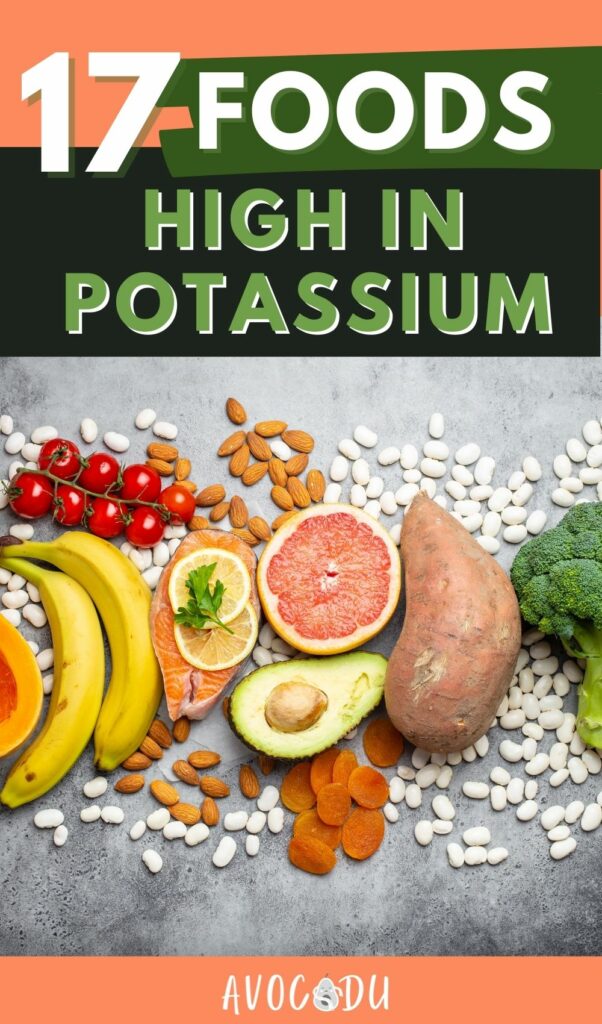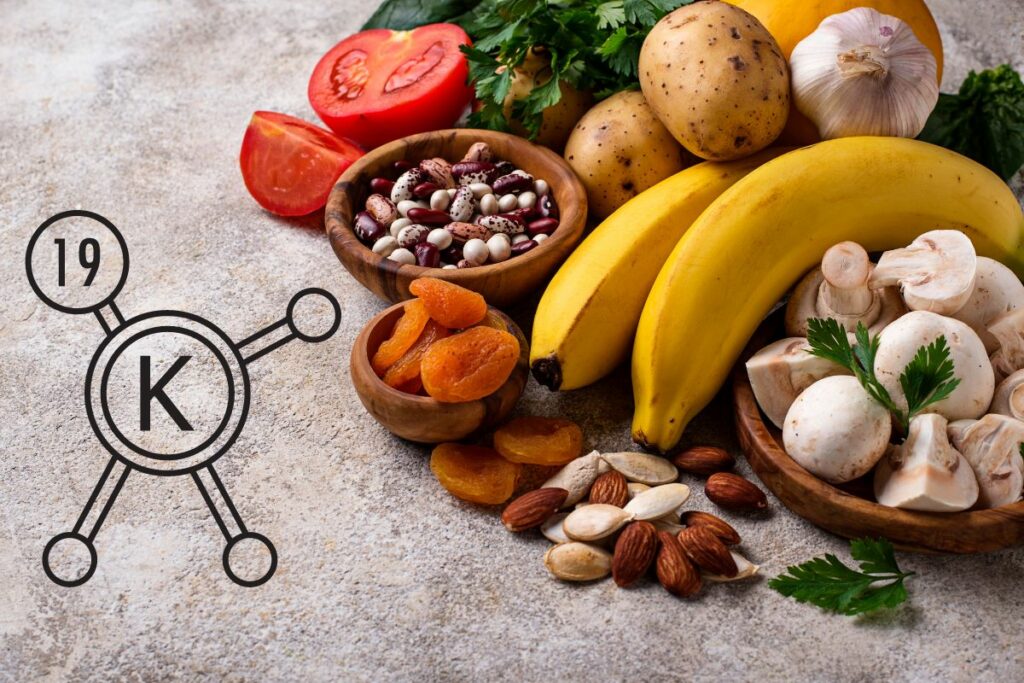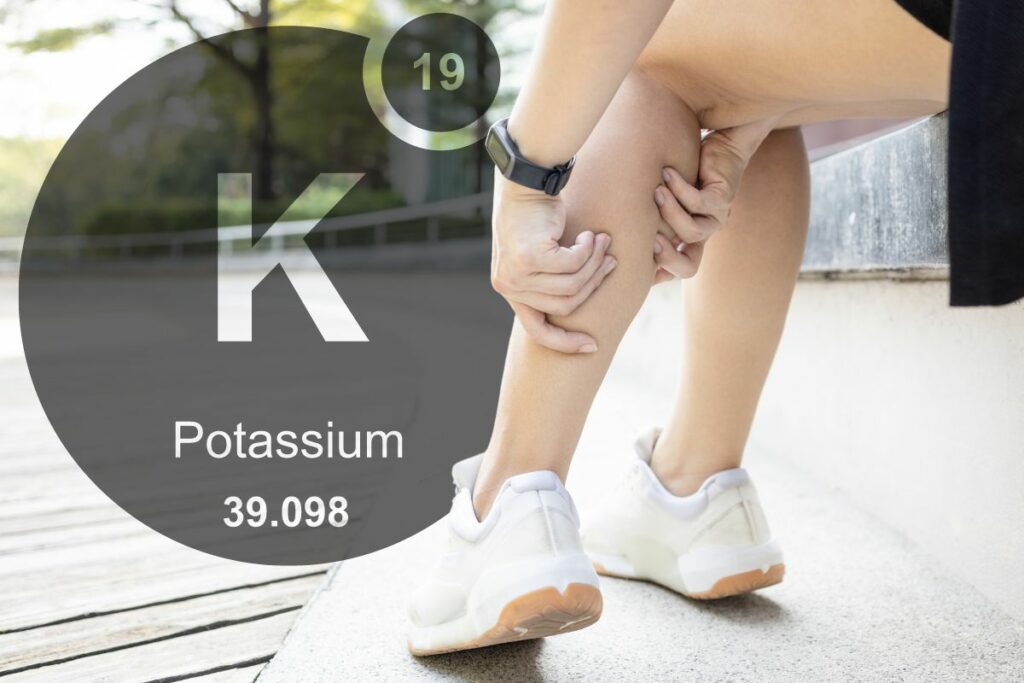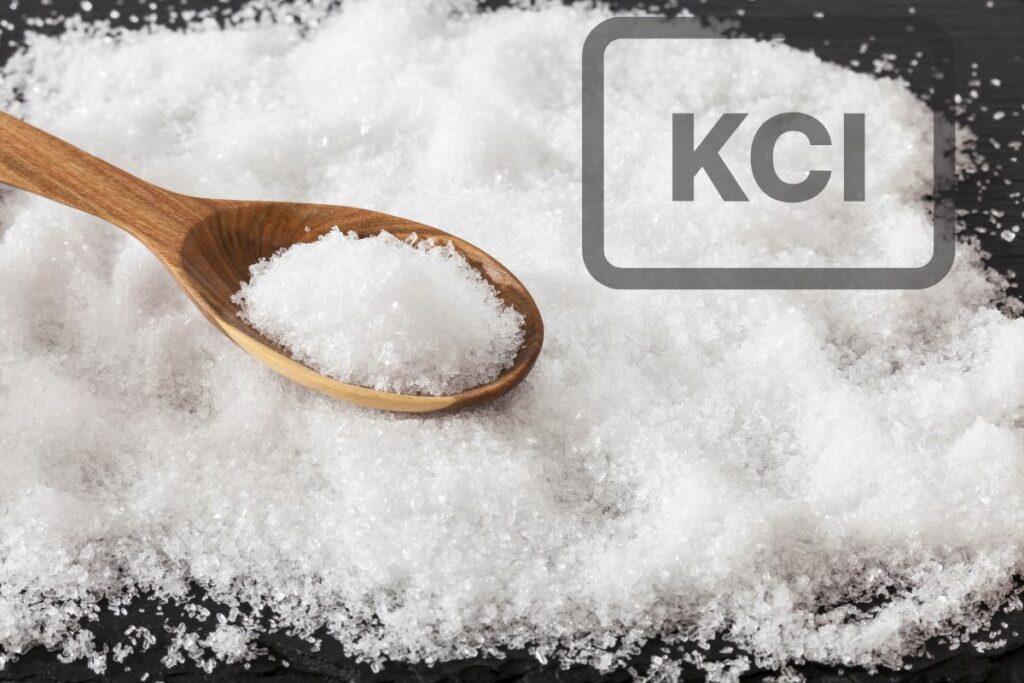17 Potassium Rich Foods for Electrolyte Balance
Feeling constantly fatigued or experiencing muscle cramps that just won’t go away? These could be signs that you’re not getting enough potassium.
This essential nutrient is a powerhouse when it comes to maintaining overall health.
Potassium is crucial for various bodily functions such as muscle contractions, nerve function, and fluid balance. Without enough of it, you might face a range of health issues.
Let’s explore what potassium is, why it’s so important, and the best potassium rich foods to include in your diet.
By understanding the role of potassium and how to get enough, you can improve your health and well-being.

This post may contain affiliate links, which helps keep this content free. Please read our disclosure for more info.
What is Potassium?
Potassium is a vital mineral and electrolyte that plays an indispensable role in your body’s overall health.
Found naturally in many foods, potassium helps to ensure that your cells, nerves, and muscles function correctly.
As an electrolyte, it carries an electric charge, which is essential for various physiological processes. Potassium is crucial for maintaining the balance of fluids within your cells and throughout your body.
This balance is vital for nerve impulses, muscle contractions, and heart function. Without adequate potassium, these processes can become inefficient, leading to various health issues.
Related article: Everything You Need to Know About Electrolytes
17 Potassium-Rich Foods

Including potassium-rich foods in your diet is a great way to ensure you’re getting enough of this essential nutrient. Here are 17 of the best sources of potassium:
- Bananas: Perhaps the most well-known source, a medium banana has about 400 mg of potassium. They are convenient and perfect for a quick snack.
- Sweet Potatoes: One medium sweet potato contains around 540 mg of potassium. They are also rich in vitamins A and C.
- Avocados: Half an avocado provides about 345 mg of potassium. This creamy fruit is also packed with healthy fats and fiber.
- Spinach: One cup of cooked spinach has about 839 mg of potassium. Spinach is also a great source of iron and magnesium.
- Tomatoes: One cup of tomato sauce can offer up to 728 mg of potassium. Fresh tomatoes and tomato products are both excellent sources.
- Beans: Various beans, such as white beans, provide around 600 mg per half-cup. They are also high in protein and fiber.
- Oranges: One cup of orange juice has approximately 496 mg of potassium. Fresh oranges are also a great option and provide plenty of vitamin C.
- Yogurt: One cup of plain yogurt can contain about 579 mg of potassium. Yogurt is also rich in calcium and probiotics.
- Salmon: A 3-ounce fillet of cooked salmon provides around 534 mg of potassium. Salmon is also high in omega-3 fatty acids, which are great for heart health.
- Coconut Water: One cup of coconut water contains about 600 mg of potassium. It’s a refreshing way to stay hydrated and replenish electrolytes.
- Butternut Squash: One cup of cooked butternut squash offers about 582 mg of potassium. It’s also a good source of vitamins A and C.
- Potatoes: One medium potato (with skin) contains around 926 mg of potassium. They are versatile and can be prepared in many ways.
- Dried Apricots: A half-cup of dried apricots provides about 1,101 mg of potassium. They are a sweet and portable snack option.
- Lentils: One cup of cooked lentils contains about 731 mg of potassium. Lentils are also a great source of plant-based protein and fiber.
- Acorn Squash: One cup of baked acorn squash has about 896 mg of potassium. It’s also rich in vitamins A and C.
- Pomegranate: One pomegranate provides about 666 mg of potassium. It’s also loaded with antioxidants and vitamins.
- Swiss Chard: One cup of cooked Swiss chard contains about 961 mg of potassium. This leafy green is also high in vitamins A, C, and K.
Including these potassium-rich foods in your diet can help you maintain proper electrolyte balance and support overall health.
Whether you enjoy them as snacks, in salads, or as part of a main dish, these foods provide a tasty and nutritious way to boost your potassium intake.
Why We Need Potassium in Our Diet

Potassium is crucial for several bodily functions that are essential for maintaining good health and overall well-being:
Maintaining Fluid Balance: Potassium works alongside sodium to regulate the balance of fluids in and out of cells.
It helps maintain osmotic equilibrium by drawing water into cells when necessary and expelling excess water, ensuring that cells are properly hydrated and functioning optimally. This balance is vital for nutrient transport, waste removal, and maintaining blood volume.
Supporting Muscle Contractions: Potassium is essential for muscle contractions because it facilitates the electrical impulses that trigger these contractions.
When a nerve stimulates a muscle, potassium ions flow out of muscle cells while sodium ions flow in, creating an electrical signal that causes the muscle to contract. This process is vital for all muscle movements, including the regular beating of the heart.
Nerve Function: Potassium helps generate and transmit electrical impulses in the nervous system. It maintains the resting membrane potential of nerve cells, which is necessary for the generation of action potentials.
These action potentials are the electrical signals that nerves use to communicate with each other and with muscles, enabling movement, reflexes, and sensations.
Blood Pressure Regulation: Potassium helps counteract the effects of sodium on blood pressure. High sodium levels cause the body to retain water, increasing blood volume and pressure.
Potassium promotes the excretion of sodium through urine, reducing water retention and easing tension in blood vessel walls. This helps lower blood pressure and supports cardiovascular health.
Preventing Kidney Stones and Bone Health: Potassium citrate helps neutralize acids in the urine, which can prevent the formation of kidney stones.
Additionally, potassium helps reduce calcium excretion in urine, preserving calcium in the bones. This supports bone density and strength, reducing the risk of osteoporosis and fractures.
Enhancing Digestive Health: Potassium aids in the contraction and relaxation of the muscles in the digestive tract.
It helps regulate the smooth muscle contractions that move food through the intestines, promoting regular bowel movements and preventing constipation. This ensures efficient digestion and nutrient absorption.
Reducing the Risk of Stroke: Potassium’s ability to lower blood pressure and promote heart health significantly reduces the risk of stroke.
By maintaining proper electrolyte balance and supporting cardiovascular function, potassium helps prevent the conditions that can lead to stroke.
How Much Potassium Do We Need?
The recommended daily intake of potassium varies based on several factors, including age, gender, and life stage. Understanding these needs can help you ensure you’re getting enough of this essential nutrient to maintain optimal health.

General Recommendations:
- Adults: On average, adults need about 2,500 to 3,000 milligrams of potassium per day. This range helps maintain normal bodily functions and supports overall health.
- Children and Adolescents: Potassium needs are lower for younger children but increase as they grow. For instance, children aged 1-3 years require about 2,000 milligrams daily, while those aged 4-8 need around 2,300 milligrams. Adolescents aged 9-18 require 2,500 to 3,000 milligrams daily, aligning with adult recommendations as they approach adulthood.
- Pregnant and Breastfeeding Women: Pregnant and breastfeeding women may require slightly more potassium to support the growing fetus and compensate for potassium loss during breastfeeding. The recommended intake for these women is approximately 2,900 to 3,300 milligrams per day.
Special Considerations:
- Athletes and Physically Active Individuals: Those who engage in high levels of physical activity may need more potassium due to increased losses through sweat. Exercise can significantly deplete potassium levels, making it crucial for athletes to replenish this electrolyte to prevent muscle cramps, fatigue, and other symptoms of deficiency. Athletes might need up to 4,700 milligrams of potassium per day, depending on the intensity and duration of their activities.
- Individuals with Certain Health Conditions: People with specific health conditions, such as chronic kidney disease, might require adjustments in their potassium intake. It is essential for these individuals to consult with healthcare providers to determine the appropriate amount of potassium for their needs. Too much potassium can be harmful in cases of kidney dysfunction, where the body cannot effectively excrete excess potassium.
- Diet and Lifestyle Factors: Dietary habits and lifestyle choices also influence potassium needs. Diets high in processed foods and low in fresh fruits and vegetables often lack sufficient potassium, increasing the need to focus on potassium-rich foods. Additionally, factors such as excessive alcohol consumption, certain medications (e.g., diuretics), and medical treatments (e.g., dialysis) can impact potassium levels and requirements.
Sources and Supplementation
While it’s best to obtain potassium from natural food sources, such as fruits, vegetables, legumes, and dairy products, some individuals may consider potassium supplements if dietary intake is insufficient.
Supplements should be taken under medical supervision to avoid the risk of hyperkalemia (high potassium levels), which can be dangerous.
Understanding your potassium needs and incorporating potassium-rich foods into your diet can help you maintain proper electrolyte balance, support muscle and nerve function, and promote overall health.
Always consult with a healthcare provider if you have concerns about your potassium intake or if you fall into a special consideration category.
Symptoms of Potassium Deficiency and Excess

Potassium plays a vital role in various bodily functions, and maintaining the right balance is crucial for health. Both deficiencies and excesses can lead to significant health issues. Here’s a detailed look at the symptoms of potassium deficiency (hypokalemia) and excess (hyperkalemia):
Potassium Deficiency (Hypokalemia)
- Muscle Weakness and Cramps: Potassium is essential for muscle contractions. Low levels can lead to muscle weakness and painful cramps, especially in the legs.
- Fatigue: Potassium aids in energy production. Deficiency can cause persistent tiredness and lethargy.
- Irregular Heartbeat: Potassium is crucial for maintaining a regular heartbeat. Low levels can cause arrhythmias, or irregular heartbeats, which may feel like your heart is skipping beats or pounding.
- Constipation: Potassium helps regulate digestive tract contractions. A deficiency can slow these contractions, leading to constipation.
- Numbness and Tingling: Low potassium can affect nerve function, causing numbness or tingling, particularly in the extremities.
- Breathing Difficulties: Severe hypokalemia can weaken respiratory muscles, making it difficult to breathe, which is a medical emergency.
- High Blood Pressure: Potassium helps balance sodium in the body. A deficiency can cause sodium retention, leading to high blood pressure.
- Mood Changes: Potassium affects neurotransmitter function. Deficiency can lead to mood swings, confusion, and depression.
- Frequent Urination and Thirst: Low potassium disrupts fluid balance, leading to increased urination and thirst, which can further deplete potassium levels.
- Bloating and Abdominal Pain: Potassium helps regulate intestinal contractions. A deficiency can cause bloating, gas, and abdominal pain.
Potassium Excess (Hyperkalemia)
- Muscle Weakness: Excess potassium can disrupt normal muscle function, leading to weakness and fatigue.
- Irregular Heartbeat: High potassium levels can cause severe arrhythmias, including bradycardia (slow heart rate) and tachycardia (fast heart rate), which can be life-threatening.
- Nausea and Vomiting: Elevated potassium levels can affect the digestive system, causing nausea and vomiting.
- Tingling and Numbness: Hyperkalemia can cause sensations of tingling or numbness, especially in the extremities.
- Shortness of Breath: Severe cases can affect respiratory function, leading to shortness of breath.
- Chest Pain: High potassium levels can cause chest pain due to its effects on heart function.
- Fatigue: Excess potassium can lead to persistent tiredness and a general feeling of weakness.
- Heart Palpitations: Elevated potassium levels can cause noticeable heart palpitations, making you feel as if your heart is pounding or racing.
- Abdominal Pain: High potassium can affect smooth muscle contractions in the digestive tract, leading to abdominal pain and cramping.
- Weak Pulse: Hyperkalemia can lead to a weak or irregular pulse, which can be a sign of severe cardiovascular distress.
Maintaining a balanced potassium level is crucial for your health. Many symptoms of potassium deficiency and excess are similar, making it challenging to determine which condition you might have.
If you suspect you’re experiencing symptoms related to potassium imbalance, it’s essential to consult with a healthcare provider. They can perform the necessary tests to diagnose the issue accurately and provide guidance on managing your potassium levels through diet, lifestyle changes, or medication if needed.
Early intervention can help prevent serious health complications and promote overall well-being.
NoSalt as a Potassium Source

If you’re looking to boost your potassium intake even more, consider NoSalt. This salt substitute provides a significant amount of potassium chloride, making it an excellent option for those looking to reduce sodium and increase potassium in their diet.
NoSalt can be used in the same way as regular salt, whether you’re seasoning food during cooking or adding a pinch to your meal at the table.
It’s particularly useful for those aiming to manage blood pressure by lowering sodium intake while simultaneously increasing potassium levels. Incorporating
NoSalt into your diet can be a simple and effective way to maintain electrolyte balance and support overall health, especially if you struggle to get enough potassium from food sources alone.
Key Takeaways for Maintaining Potassium Levels
Incorporating potassium-rich foods into your diet is a simple yet effective way to support your overall health. By maintaining a balanced intake of this essential electrolyte, you’ll help keep your body functioning optimally.
Whether it’s through fruits, vegetables, legumes, or other nutritious foods, ensuring you get enough potassium is key to a healthy lifestyle.
Making these dietary adjustments can help prevent deficiencies, reduce the risk of chronic diseases, and enhance your overall well-being. A varied and balanced diet rich in potassium can make a significant difference in your health and quality of life.

